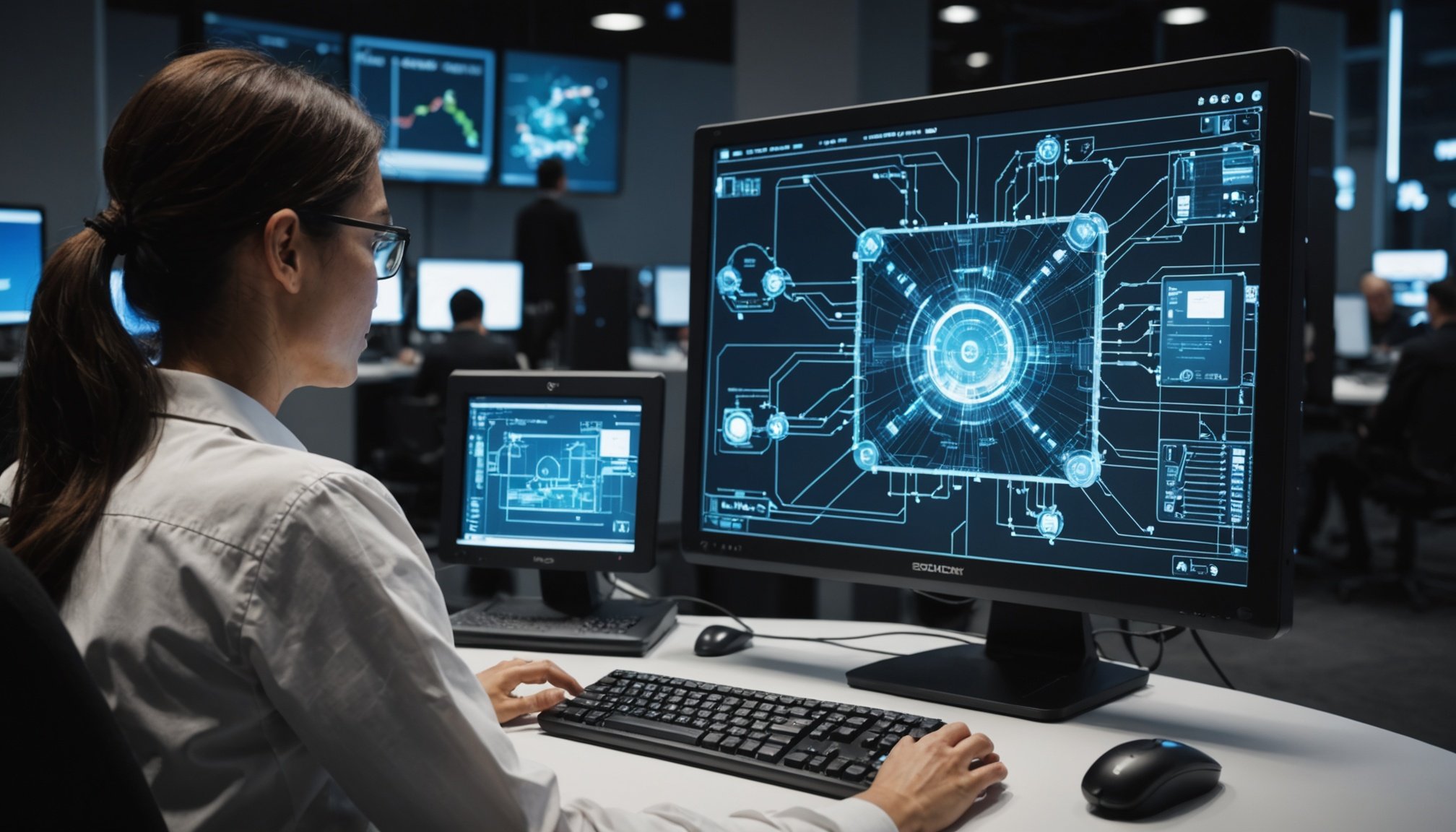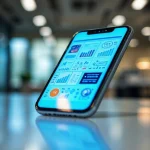The Immediate Impact of High-Tech Computing on Daily Routines
High-tech computing is revolutionizing daily life impact by transforming how we work, communicate, and manage personal tasks. Technology integration is no longer futuristic; it’s an everyday reality reshaping both home and office environments.
In workplaces, advanced computing enables seamless remote collaboration through cloud-based tools, allowing teams to connect across continents in real time. Automation powered by artificial intelligence streamlines repetitive tasks, boosting efficiency and freeing up time for creative problem-solving.
Topic to read : Transform your product images with an ai photography tool
At home, smart devices equipped with high-tech computing adapt to user preferences, automating lighting, temperature, and security systems. Virtual assistants respond instantly to voice commands, simplifying everyday chores and contributing to convenience and energy savings.
Communication channels benefit from technology integration, with video conferencing, instant messaging, and social media platforms keeping people connected regardless of distance. These advances improve accessibility and have proven essential in maintaining personal and professional relationships.
Topic to read : How Can AI Innovations Shape the Future of UK’s High-Tech Industry?
Overall, the daily life impact of high-tech computing is evident in how effortlessly technology merges with routine activities, enhancing productivity, comfort, and connectivity in ways previously unimaginable.
Artificial Intelligence: Transforming Work, Health and Communication
Artificial intelligence is revolutionizing various sectors by introducing workplace automation that streamlines job processes and boosts efficiency. In offices, AI tools automate routine tasks such as scheduling and data management, allowing employees to focus on creative and strategic work. This not only improves productivity but also fosters better collaboration by providing smart insights and real-time communication aids.
In healthcare, healthcare AI plays a critical role in diagnostics and patient care. AI algorithms can analyze medical images and data faster and often more accurately than humans, leading to earlier disease detection. Remote monitoring powered by AI also enables continuous patient supervision outside traditional clinical settings, improving health outcomes and reducing hospital visits.
Smart communication is enhanced by AI-driven tools that adapt to user preferences and contexts, facilitating clearer and more personalized interactions. From intelligent virtual assistants to language translation and sentiment analysis, smart communication technologies break down language barriers and improve both personal and professional exchanges. These advancements signify how artificial intelligence is not just a tool but a transformative force reshaping how we work, heal, and connect.
Quantum Computing: Unlocking New Possibilities and Challenges
Quantum computing represents a paradigm shift in the computing revolution, offering capabilities far beyond classical systems. Unlike traditional bits, quantum computers use qubits, which leverage superposition and entanglement. This allows them to process complex calculations exponentially faster, opening new frontiers in technology adoption.
One of the most promising applications of quantum computing lies in cryptography. Quantum algorithms can potentially break widely used encryption methods, prompting researchers to develop quantum-resistant cryptographic standards. In the pharmaceutical industry, quantum computing accelerates drug discovery by simulating molecular interactions with unprecedented precision, drastically reducing development time and cost.
Financial modelling also benefits from this technology revolution. Quantum computers can analyze vast datasets to optimize portfolios, forecast market trends, and manage risk more efficiently than classical computers. These advancements underscore why quantum computing is at the forefront of the computing revolution, heralding transformative changes across sectors as technology adoption grows. Understanding both its capabilities and limitations is crucial for leveraging its full potential in real-world applications.
The Internet of Things: Creating a Seamless and Connected Lifestyle
The Internet of Things (IoT) transforms everyday living by linking smart home appliances and connected devices to create a cohesive environment. These devices communicate effortlessly, allowing users to control lighting, heating, and security systems remotely, enhancing personal convenience.
One key IoT benefit is energy management. Smart thermostats learn user preferences and adjust temperatures automatically, reducing power bills while maintaining comfort. Similarly, connected devices can monitor energy usage in real-time, identifying waste and suggesting optimizations.
Security also gains a significant boost through IoT. Smart cameras, locks, and sensors provide continuous monitoring and instant alerts, enabling proactive responses to threats. This level of control fosters peace of mind both at home and in professional spaces.
Ultimately, IoT gadgets simplify complex tasks, freeing time and reducing stress. From adjusting ambiance to safeguarding property, the smart home ecosystem streamlines routines, demonstrating practical advantages that encourage adoption. Exploring how connected devices improve your environment could lead to a more efficient and enjoyable lifestyle.
Future Mobility: High-Tech Computing in Transportation
The integration of smart transportation systems and autonomous vehicles is reshaping how we move within cities and across regions. By leveraging cutting-edge computing power, these technologies enable vehicles to interpret data from sensors, cameras, and GPS to navigate safely without human input. This shift enhances safety, reduces traffic congestion, and improves fuel efficiency.
Advanced algorithms in autonomous vehicles process real-time information to predict traffic patterns and adjust routes dynamically. Simultaneously, smart transportation infrastructure communicates with vehicles to optimize traffic flow through adaptive signal control. This synergy not only transforms daily commuting but also revolutionizes logistics by enabling seamless, automated delivery networks.
Urban planners benefit profoundly from these innovations, as data-driven insights allow for designing smarter cities that prioritize sustainable mobility and accessibility. Integrating computing-enabled transportation systems promises to reduce environmental impact and improve quality of life by decreasing travel times.
Embracing mobility innovation involves overcoming challenges such as regulatory frameworks and cybersecurity risks, but the potential gains in efficiency and safety make it a promising frontier in high-tech computing.
Challenges and Considerations in a High-Tech World
Navigating the landscape of technology challenges requires careful attention to cybersecurity and privacy concerns. As digital interaction grows, so do risks like data breaches and unauthorized access. Protecting sensitive information demands robust security measures and ongoing vigilance.
Moreover, ethical concerns arise around surveillance, data usage, and algorithmic bias. These issues highlight the importance of transparent policies and accountability in technology development and deployment. Ignoring these factors can erode public trust and lead to significant social consequences.
Successful digital adaptation hinges on fostering digital literacy across all age groups. Equipping individuals with the skills to understand, evaluate, and safely interact with technology reduces vulnerability to scams and misinformation. Embracing education helps mitigate technology challenges and empowers users.
While advanced technology brings remarkable benefits, the pace of change requires continuous learning and responsiveness to new threats. Prioritizing cybersecurity and ethical standards alongside digital adaptation ensures society can harness technology’s potential securely and responsibly.
Expert Insights: Predictions on the Societal Impact of Computing Advances
Advances in the future of computing promise profound societal changes, as expert analysis reveals a double-edged impact. Breakthroughs in artificial intelligence and quantum computing are expected to revolutionize industries, healthcare, and communication, making processes faster and more efficient. Experts predict that automation powered by advanced computing will reshape job markets, eliminating some roles while creating new opportunities requiring specialized skills.
At the same time, there are concerns about digital divides widening due to unequal access to emerging technologies. Societal structures may experience shifts in power dynamics, with data control becoming a critical issue. Expert analysis emphasizes the importance of proactive policies that balance innovation’s benefits with risks like privacy erosion and ethical challenges.
Importantly, ongoing collaboration between technologists, policymakers, and communities will be essential to guide these developments positively. Understanding expert predictions on the future of computing helps society prepare and adapt, fostering resilience amid rapid change. The societal changes are not just technical, but deeply social, making this an area that demands both optimism and caution.









